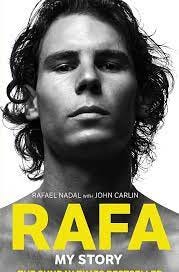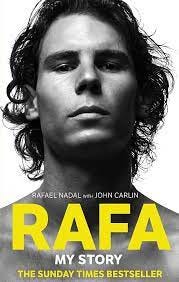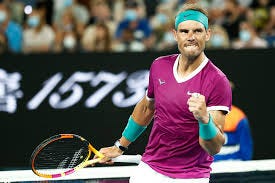Rafa Nadal is probably my favorite athlete of all time, and here’s why.
Most elite athletes have a swagger. They think they are the best.
If you saw The Last Dance, Michael Jordan not only thought he was the best, or was going to be the best, but he wanted to prove it to other people. Even in his hall of fame speech, he says how he was trying to prove wrong anyone who passed up on him, like his high school coach.
But Nadal doesn’t operate like that.
In his great book, Rafa, Nadal explains, not only how he beat Federer, but how he did it, even though he viewed Federer as “the best player in history.”
Can you imagine Micahel Jordan or Tiger Woods or Tom Brady saying that? I can’t.
Ok, you might say, but why is that a good thing?
That’s the subject of today’s, OGT.
Not talent, but mind
In Rafa, two matches are contrasted.
The 2007 Wimbeldon match between Federer and Nadal, which Nadal barely lost, and the 2008 rematch, when he won it.
In preparing for the 2008 match, something struck me.
His coach (who is also his uncle, Tony) says flat out that if both players are at their best, Federer will win. That it’s Federer is the more gifted tennis player.
Uncle Tony told him:
“You’re not going to beat him on talent, on the brilliance of your shot making. He’ll always be more able to make a winner out of nothing than you. So you have to press him all the time, force him to play at the very limit of his abilities.”
And this is what makes Nadal great. It’s that even knowing he’s not more skilled, he still believes he will win.
Not by talent. Not by power, confidence, or laser accuracy, but with resilience. With his mind.
Tennis is, more than most sports, a sport of the mind; it is the player who has those good sensations on the most days, who manages to isolate himself best from his fears and from the ups and downs in morale a match inevitably brings, who ends up being world number one.
Nadal’s point is everyone can hit the ball great. “If you watch the number ten player in the world and the number five hundred in training,” he said, “you won’t necessarily be able to tell who is higher up in the rankings.”
The match is about who makes the right choices; who is less overtaken by their mind.
What I battle hardest to do in a tennis match is to quiet the voices in my head, to shut everything out of my mind but the contest itself and concentrate every atom of my being on the point I am playing. If I made a mistake on a previous point, forget it; should a thought of victory suggest itself, crush it.
His game plan against Federer was tactical in a way: hit it to his backhand but the part I like better, is his plan for when Federer is winning points.
And when he is striking the ball well, as he most surely will, for you won’t have him in trouble the whole time, not by any means, chase down every attempted winner of his, hit it back deep, make him feel he has to win the point two, three, four times to get to 15–love
It’s this mindset that Nadal took with him in 2008 and credits with the win. The mindset that built within him, that despite Federer being, as Nadal said, “the best player in history,” he had a self-belief that he could win:
I knew something that he didn’t, and never could…inside I bore the single-minded conviction that I had it in me to win….
The one thought that occupied my brain was that today, I’d rise to the occassion.
And he did.
The OGT
For me, the key to understanding Nadal is this one point.
Nadal’s mindset is, Federer may be better than me. He might have more talent, precision, and positioning, but I’m going to “make him feel like he has to win the point two, three, four times.” I’m going to outlast him.
It’s the spirit of Rocky. The spirit of, “you will not outwork me.” The spirit of resilience.
And it’s available to anyone who puts in the work. We’re not all talented, but we all can put in effort.
That’s why it’s inspiring. That’s why Nadal is the best.
Now, go think on that.





